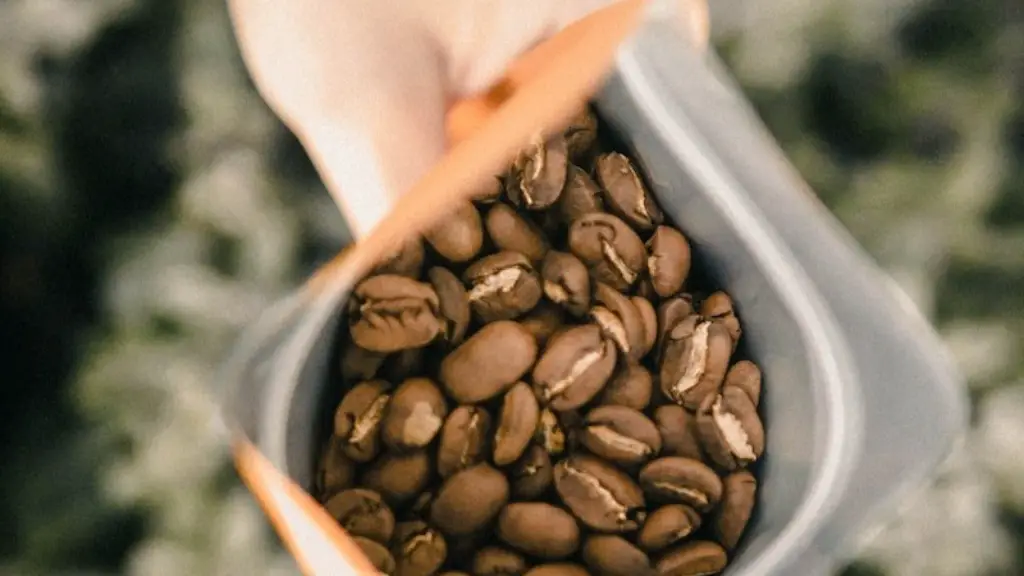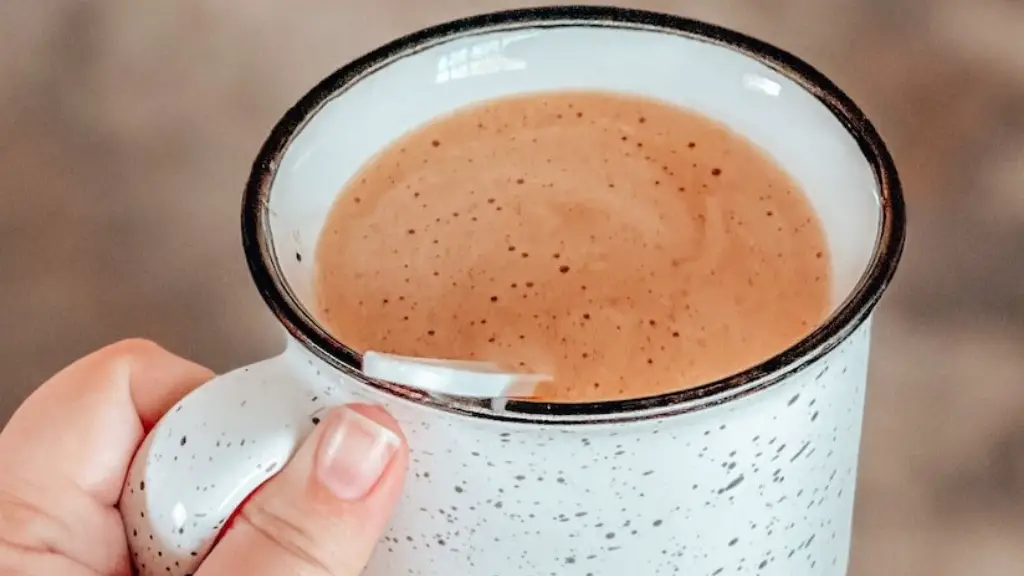Coffee is a popular beverage, enjoyed by millions of people around the world. But what happens if dogs drink coffee? While coffee can give people a much-needed boost of energy, it can be dangerous and even fatal for dogs.
Caffeine is a powerful stimulant that can cause severe side effects in dogs, including vomiting, diarrhea, restlessness, excessive panting and urination, and even death.
It’s important to be aware of what your dog is consuming and to take steps to ensure they don’t accidentally get into any coffee products. For example, if you have a coffee maker with a brew basket or grounds in it, be sure to keep it out of reach of your dog. And if you’re out walking with your pup, make sure they don’t get into any discarded coffee cups or grounds.
It’s also important to be aware that some foods containing caffeine may also pose a risk. Chocolate contains caffeine and should never be given to dogs. In addition, caffeinated energy drinks should also be avoided as they contain high levels of caffeine that can be toxic for dogs.
If you think your dog has consumed any caffeinated products or if they’re exhibiting any signs of distress or illness after drinking something containing caffeine, seek veterinary help immediately.
Symptoms of Caffeine Poisoning in Dogs
Caffeine is toxic to dogs and can cause serious health issues if ingested. Dogs that have been exposed to caffeine may experience a wide range of symptoms, including vomiting, restlessness, increased heart rate, and hyperactivity. In severe cases, caffeine poisoning can lead to seizures, coma, and even death. It is important to contact your veterinarian immediately if you suspect your dog has ingested caffeine.
It is important to note that caffeine can be found in many forms such as coffee, tea, energy drinks, and even chocolate. It is important to keep any items containing caffeine out of reach from pets. Even small amounts of caffeine can be dangerous for dogs and can cause significant health problems. If you suspect your pet has consumed any form of caffeine it is important to seek medical attention right away as the effects of toxicity can be life-threatening if not treated quickly.
How Much Coffee is Too Much for Dogs
Caffeine is a powerful stimulant, and even in small amounts, it can have an adverse effect on your pup. Dogs are much more sensitive to caffeine than humans, and coffee can be toxic to them in large doses. Even small amounts of coffee can cause heart palpitations, trembling, restlessness, excessive panting and vomiting. In severe cases, it can lead to seizures and even death.
It’s best to keep your dog away from coffee altogether if possible. If you must offer them a treat with caffeine in it, make sure to give them only a very small amount. If you notice any strange behaviors after giving your dog coffee or other caffeinated products, contact your vet immediately. When it comes to your pup’s health and safety, moderation is key.
Long-Term Effects of Caffeine Consumption in Dogs
Caffeine is a stimulant that is commonly found in coffee, tea, soda, energy drinks, and other products. While caffeine can provide an energy boost for people, it can be dangerous for dogs. Consuming caffeine can cause serious health issues in dogs, including restlessness, rapid breathing, heart palpitations, seizures, and even death. It is important to keep all caffeinated products away from your dog.
Short-term effects of caffeine consumption in dogs include hyperactivity and restlessness. Dogs may pant and pace excessively or become overly excited when exposed to caffeine. They may also become extremely thirsty and drink more than usual. In addition, caffeine can cause increased heart rate and blood pressure as well as gastrointestinal upset.
Long-term effects of caffeine consumption in dogs can be even more serious. Chronic consumption of caffeine can lead to neurological problems such as tremors or seizures. It can also cause liver damage and kidney failure if consumed over an extended period of time. Additionally, long-term exposure to caffeine can lead to arrhythmias or abnormal heart rhythms which can be dangerous or even fatal for dogs.
Overall it is best to keep all caffeinated products away from your dog in order to avoid any potential health issues caused by caffeine consumption. If you suspect that your dog has consumed a caffeinated product it is important to seek veterinary care immediately as some of the side effects are potentially life threatening.
Alternatives to Coffee for Dog Owners
Dogs should not be given coffee, as it can be harmful to their health. Caffeinated drinks can increase a dog’s heart rate and cause vomiting, diarrhea, restlessness, and excessive thirst. Instead, there are several other options that can provide a similar energy boost without any of the negative side effects.
Herbal teas like chamomile are a great way to give your dog an energy boost. They are naturally caffeine-free and offer calming effects that can help reduce stress and anxiety in dogs. Additionally, herbal teas can help improve digestion and promote healthy skin and coat.
Bone broth is another excellent alternative for giving your dog an energy boost without the potential risks associated with caffeine. Rich in vitamins and minerals, bone broth has numerous health benefits for dogs. It helps keep them hydrated, boosts their immune system, reduces inflammation, and improves joint health.
If your pup needs an extra pick-me-up during the day, try giving them some natural juices like carrot or apple juice diluted with water. Not only do these juices provide energy, but they also contain essential vitamins that are beneficial for your pet’s overall health.
Finally, you can also give your pup some fresh fruits like apples or bananas that will give them a natural energy boost while providing important nutrients such as fiber and vitamins. Fruits are especially beneficial if your pup needs some additional fiber in their diet as it helps keep their digestive system healthy.
Risk Factors for Caffeine Poisoning in Dogs
Caffeine poisoning is a serious issue that can affect dogs if they consume caffeine-containing products, such as coffee, tea, energy drinks, and chocolate. Symptoms of caffeine poisoning in dogs may include restlessness, rapid breathing, increased heart rate, vomiting, diarrhea, seizures, and even death. Toxic levels of caffeine can be reached quickly in small dogs or puppies.
It is important to monitor what your pup consumes and to keep all caffeinated products away from them. This includes not only coffee and other beverages but also medication that contains caffeine. If you suspect that your dog has ingested something with caffeine in it, contact your veterinarian immediately for treatment. They may recommend inducing vomiting or giving activated charcoal to help absorb the toxins.
It is also important to keep an eye on your pup if they have consumed a caffeinated product. Signs of caffeine poisoning may not be evident until several hours after ingestion. Monitor their behavior and seek medical attention right away if any symptoms develop. Even with prompt treatment, the effects of caffeine toxicity can be serious and potentially life-threatening.
What to Do if Your Dog Drinks Coffee
Coffee is one of the most popular beverages in the world, but it can be very dangerous for your dog. Dogs are much more sensitive to caffeine than humans, so even small amounts of coffee can have serious health consequences. If your dog drinks coffee, it is important to take action right away to help prevent any adverse effects.
The most important step you can take is to limit your pet’s access to caffeine. Immediately remove any coffee-containing items from your dog’s reach and ensure that they are not able to consume any more caffeine.
Next, it is important to monitor your pet’s behavior closely for signs of distress or illness. Look for symptoms such as restlessness, shaking, increased heart rate, vomiting, or diarrhea. If you observe any of these signs, contact your veterinarian immediately for advice on how best to proceed.
Finally, it is essential that you take steps to prevent this from happening again in the future. Make sure all caffeinated beverages are stored securely and out of reach of your pet and consider implementing a policy where no caffeinated drinks are allowed near pets at all times. Additionally, make sure that all visitors know not to offer coffee to your pet and keep an eye on them if they do bring a drink into the house.
Although it can be upsetting when our canine companions consume coffee by accident, there are steps you can take right away to help mitigate any potential harm caused by the caffeine in coffee. With proactive measures and quick action in case of an emergency, you can help protect your pooch from the dangers of caffeine consumption!
Final Words
In conclusion, it is not advisable to give your dog coffee, as it can be dangerous and even fatal if ingested in large amounts. While small amounts may not be harmful, it is better to just avoid giving your pup coffee altogether. It is important to remember that any changes to your pet’s diet should be discussed with a vet beforehand.
Coffee can cause serious health issues for dogs and make them very sick if consumed in large quantities. It is better to stick with providing plenty of water and food that is specifically designed for canine health. By doing so, you can keep your beloved pet safe from the dangers of caffeine toxicity.





